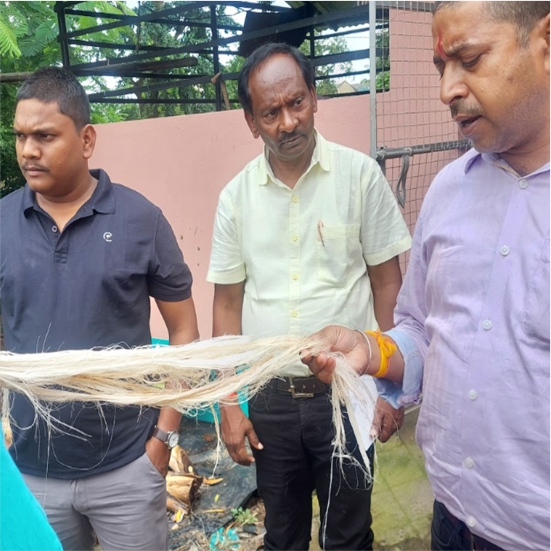
Indian Micro Enterprises Development Foundation (IMEDF), a Section 8 company and the special purpose vehicle of the Development Alternatives Group, in collaboration with Tarasankar Panchagram Seva Samiti, Hindalco CSR, Fortune Odisha, and Swami Vivekananda Shiksha Samiti, organised an immersion program titled “Spinning Livelihoods, Stitching Sustainability – Collective Entrepreneurship with Natural Fibers” from July 25th to July 27th, 2025, at Santiniketan, Bolpur, in Birbhum District of West Bengal.
#InclusiveEntrepreneurship
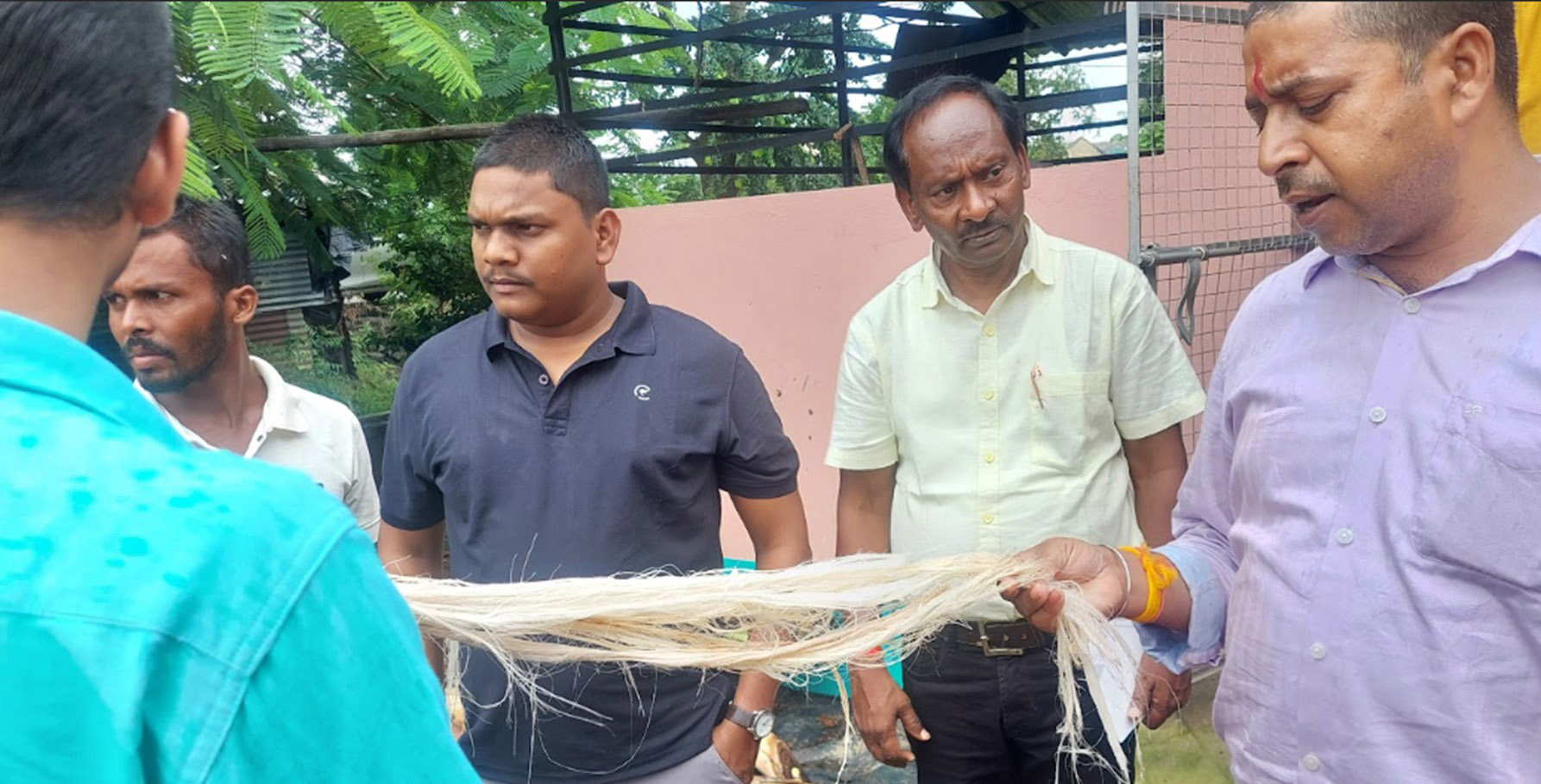
Participants witnessing the banana fiber extraction process
The Indian Micro Enterprises Development Foundation (IMEDF), a Section 8 company under the Development Alternatives Group, recently hosted a three-day immersion programme titled Spinning Livelihoods, Stitching Sustainability in Santiniketan, Bolpur. The event focused on regenerative and inclusive entrepreneurship, especially through collective enterprises working with banana fibre and circular use of banana residue.
The programme convened 11 participants from four development sector organisations, including CSR professionals, development executives, mid-level managers, and artisans. Sessions were led by Col. Raman Thapar, General Manager, IMEDF; Shyamal Sarkar, Secretary, Tarasankar Panchagram Seva Samiti; and Protap Chakraborty, CEO, Tarasankar Panchagram Producer Company.
Day one explored the local cluster ecosystem and the Banana Fiber Craft Initiative—a striking example of eco-conscious innovation rooted in tradition. A visit to Shilpo Sadan at Visva-Bharati University offered a glimpse into Santiniketan’s legacy of creativity and community.
Day two focused on collective enterprise and market linkages under the SFURTI scheme. Col. Thapar detailed IMEDF’s grassroots approach to cluster development, followed by artisan-led demonstrations of banana fibre processing. Field visits to Sekhampur and Bodakuri (Dubrajpur) showcased integrated farming and sustainable rural development.
Day three offered space for reflection. Participants synthesised key takeaways, revisited standout moments, and shared insights. A guided walk through Sonajhuri Haat highlighted how local artisans blend culture and commerce—turning heritage into a sustainable economic engine.
“The immersion programme was incredibly valuable. It offered practical exposure, deepened my understanding of sustainable livelihood models, and brought traditional crafts to life in powerful ways.” – Ananya Dey
“Well-structured and hands-on, the experience connected traditional knowledge with modern enterprise. Interacting with artisans and exploring FPOs gave me a real sense of how self-reliance can be rooted in local resources.” – Manoj Kumar
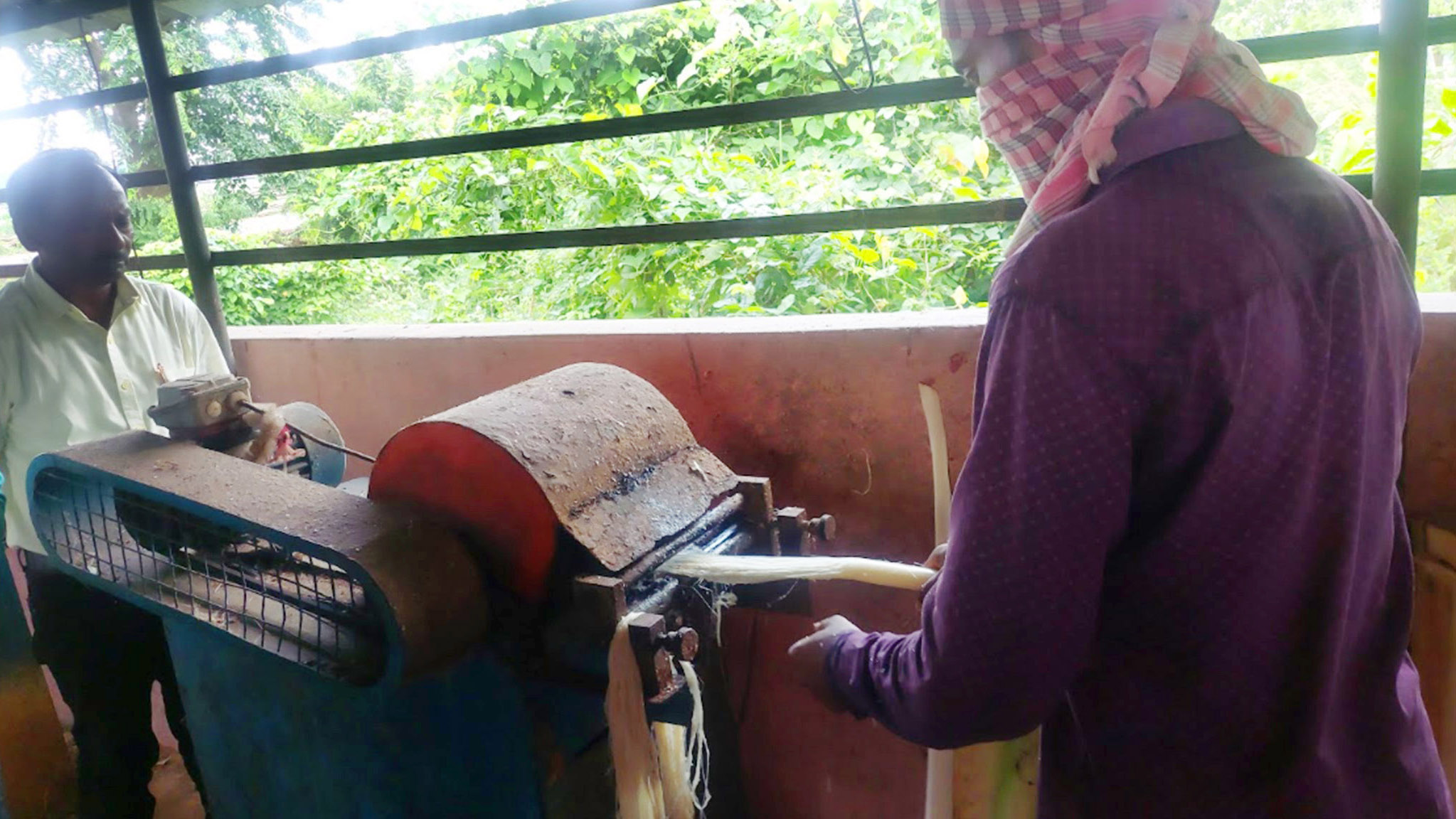
Extraction process of Banana fiber
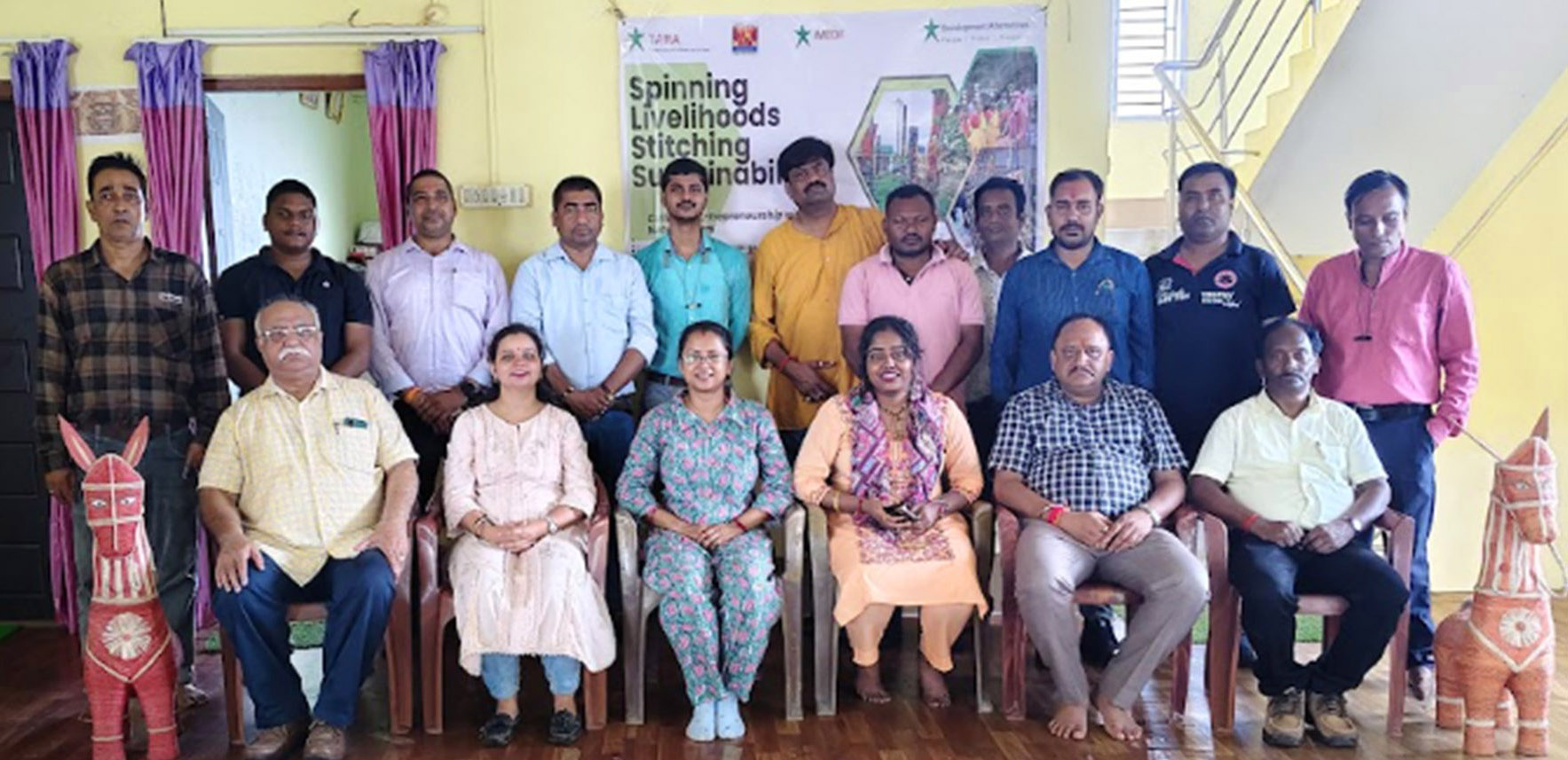
Group photo with the participants of the Immersion Programme
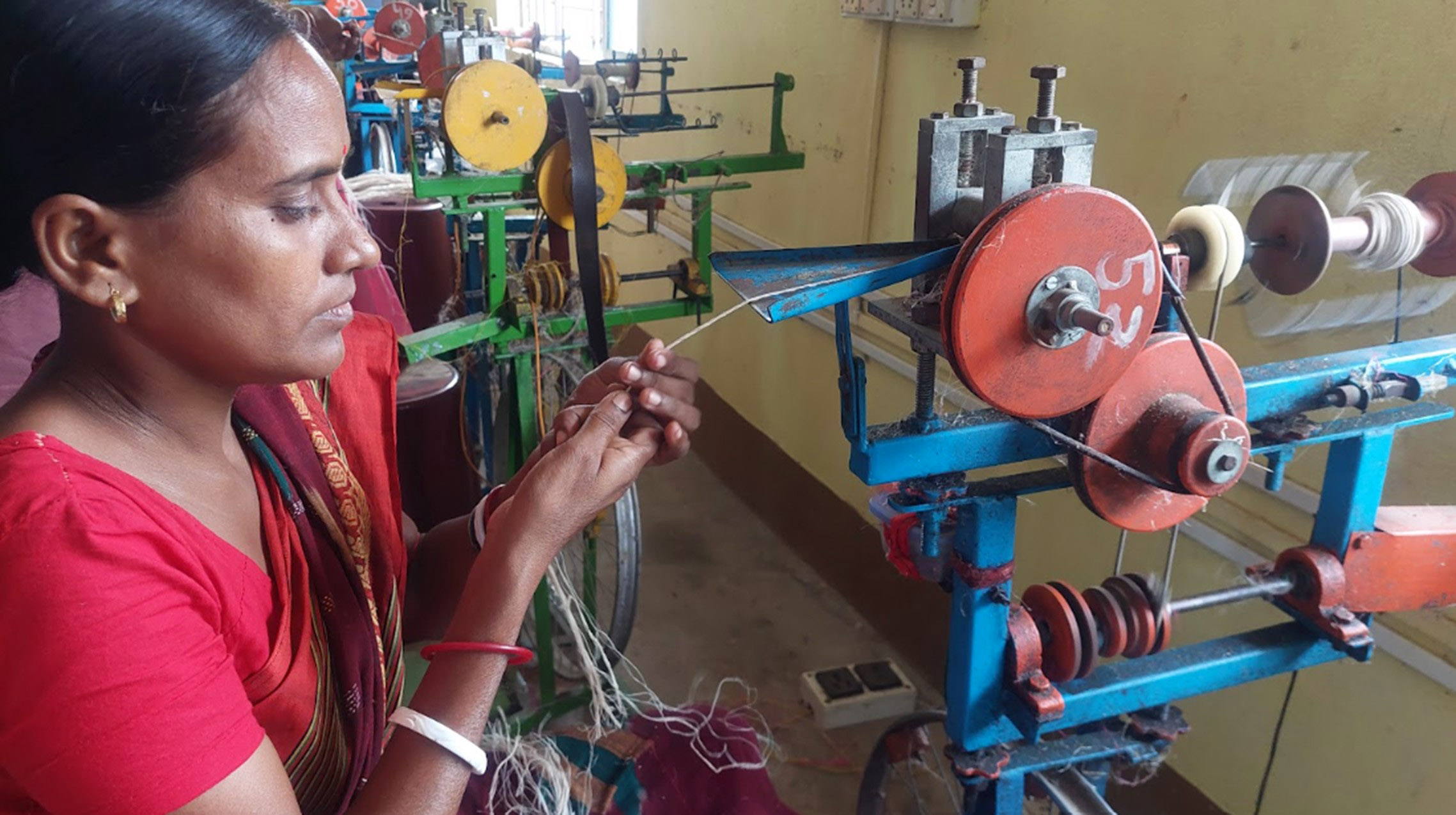
Women artisans engaged in the process of thread making using Banana fiber
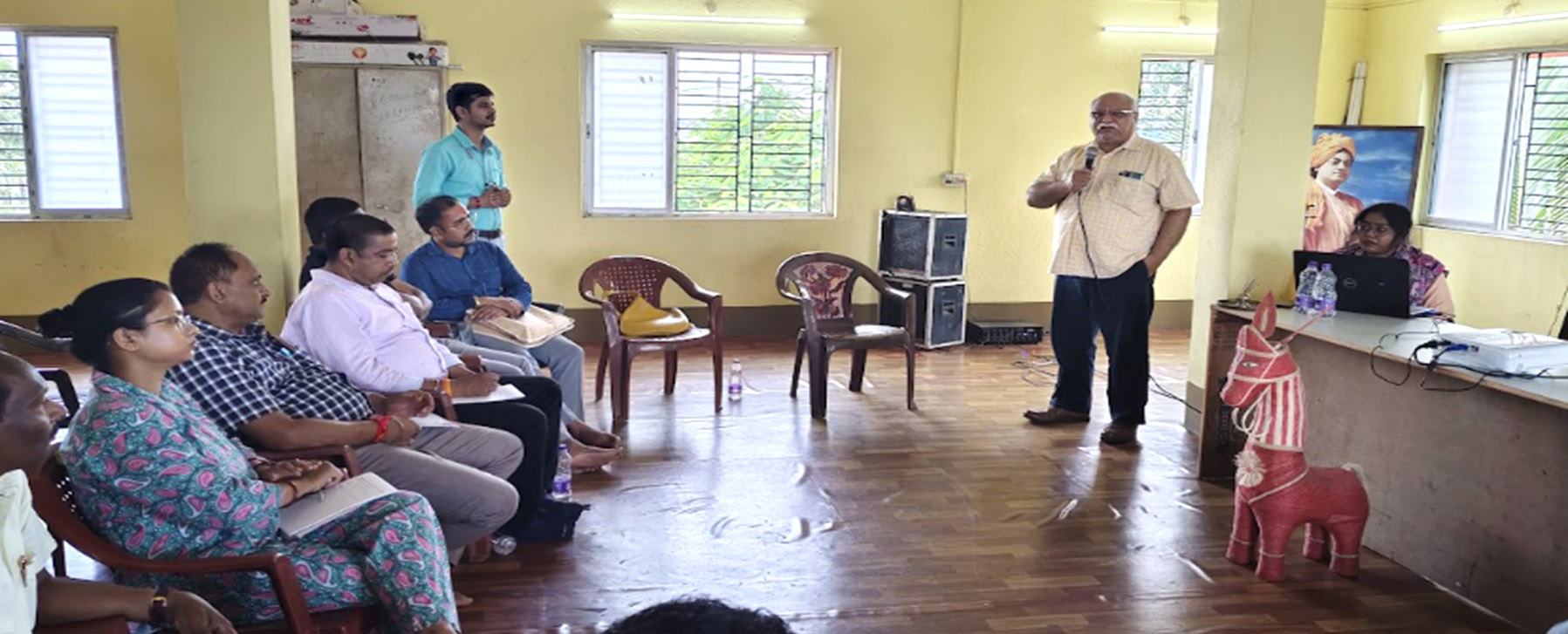
Session on SFURTI scheme and the role of IMEDF delivered by Col Raman Thapar